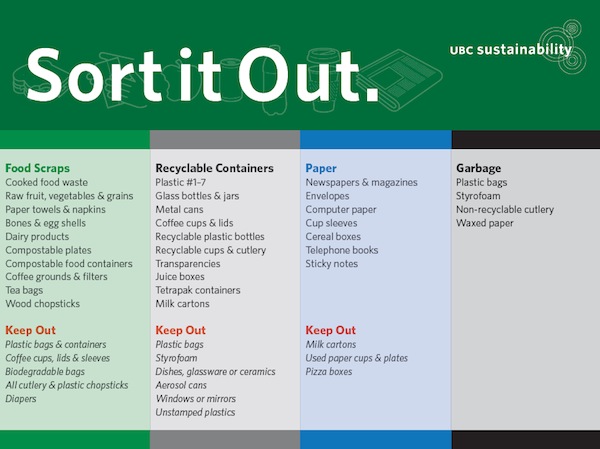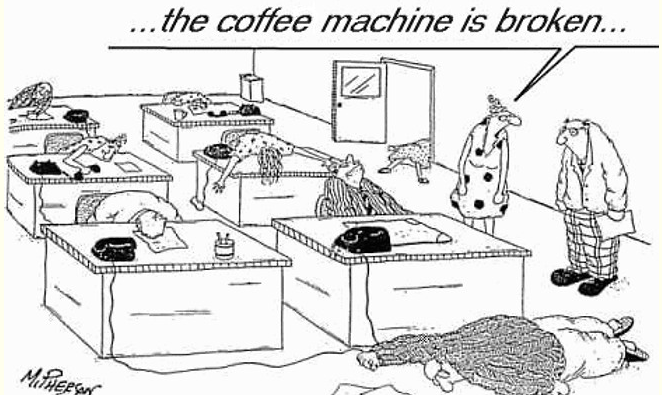In March, I was in a state of panic. Having no idea which university I wanted to attend, I decided to do some research on the cultures of the schools I was looking at. UBC stood out to me for its dedication to social responsibility, from gender and sexual orientation inclusivity to the use of sustainable resources. After reading this information, I thought to myself, this is a community that I want to be a part of. So I accepted my offer to UBC and started packing my bags.
One major difference I noticed at UBC was the four-bin waste system, which differed significantly from the simple recycling and garbage system that I had grown used to in Calgary. From the moment I set foot on campus, UBC’s dedication to its vision for a better future was clear, and made me proud to be a UBC student. UBC sets a strong example for businesses to create a positive impact on the world while making profits.
What really stood out to me was that the majority of UBC’s operational food waste is compostable material. Recently, I had the opportunity to meet the owner of the food container company that produces UBC’s compostable containers. Upon seeing the disposable plates we were given for refreshments, she pointed out that most consumers do not pay attention to where their disposable waste comes from. She could make the same plate of the same quality out of sustainable materials, but that would mean higher costs. With a product that is going to end up in the trash anyways, consumers make the cheaper choice without a thought.
How can the Earth’s environmental problems be solved under a capitalist economy? As discussed in a class reading, businesses can reconcile their economic needs with society’s needs by creating shared value (Kramer 2011). Rather than having companies make profits at the expense of others, a culture encouraging social responsibility must be created. I believe this culture starts with consumers: if consumers are educated about what is good for society, they will purchase more sustainable products. If demand for these products is increased, production will increase and, eventually, average costs will go down. Prices for sustainable products will decrease, and sustainability will become the new norm.
By changing the way consumers think, companies can effect change on the entire system. Just look at the tech industry: computers, which used to be an anomaly, now exist in nearly every Canadian home. UBC is sparking the same type of culture change through its dedication to sustainability, giving it a strong selling point while setting an example for other universities to consider sustainable practices. Through shared value, we are making our way towards a better, greener world.
Word count: 450
References:
Kramer, M. & Porter, M. (2011). Creating Shared Value. Harvard Business Review, 89(1/2), 62-77.
Responsibility. (n.d.). Retrieved October 27, 2016, from http://www.food.ubc.ca/responsibility/
Sexual orientation and gender identity. (n.d.). Retrieved October 27, 2016, from http://students.ubc.ca/campus/diversity/sexual-orientation
Sorting Guide. (n.d.). Retrieved October 28, 2016, from https://sustain.ubc.ca/campus-initiatives/recycling-waste/sort-it-out/sorting-guide
Sustainable Food Initiatives. (n.d.). Retrieved October 27, 2016, from https://sustain.ubc.ca/campus-initiatives/food/sustainable-food-initiatives
UBC named top Canadian university in sustainability. (2015, October 27). Retrieved October 27, 2016, from http://news.ubc.ca/2015/10/27/ubc-named-top-canadian-university-in-sustainability/





